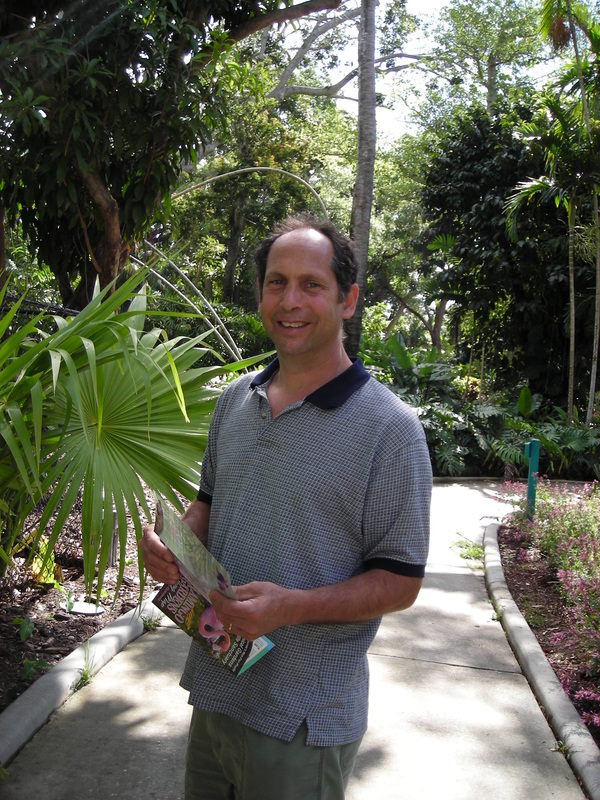Case 24 Fuketsu's Speech and Silence
A monk asked Fuketsu, "Both speech and silence are faulty in being ri [離 inward action of mind] or bi [微 outward action of mind]. How can we escape these faults?"
Fuketsu said,
"I always remember the spring in Kõnan,
Where the partridges sing;
How fragrant the countless flowers!"
Mumon's Comment
Fuketsu's Zen spirit was like lightning and opened a clear passage.
However, he was entangled in the monk's words and could not cut them off.
If you can really grasp the problem, you can readily find the way out.
Now, putting language samadhi aside, say it in your own words.
Mumon's Verse
He does not use a refined phrase;
Before speaking, he has already handed it over.
If you chatter on and on,
You will find you have lost your way.
It is common that after a person has practiced Zen for a bit and understands that somehow this practice is about transcending duality but then when they look at their thoughts they see only duality. And if they are a thinker, when they spin this problem in their heads they find no resolution. Maybe they even will think this is a problem impossible to overcome. The difficulty of seeing through dualistic thought is profound. Every way we turn we are caught in dualistic thought. I had a friend, a long term practitioner of Zen, that told me it was impossible to be unattached because there is still the attachment to unattachment. I have another friend, also another long term practitioner, who thinks that one must be unconscious to be truly enlightened because to be conscious is to have a self. Many believe that to talk of or even think about the dharma is to taint it with dualism. The monk in this koan is thus caught.
Zen is not a box we can think ourselves out of. Yet there is a door or gate as in Gateless Gate (Mumonkan). We cannot sit zazen and solve a koan like this and become enlightened by quietly thinking away. A koan is only solved, kesho only occurs, when we give up all thought of intellectually solving the koan. Duality is only transcended in experience. The Non-Dual is ever present but only hidden by our constant thought. So we must quiet our thoughts and then in an instant the problem is resolved, the Non-Dual is revealed and we understand we have ever been functioning within the Non-Dual, and we have ever been enlightened. Thus our "Zen" problems have been resolved.
In the history of Zen there has been an ongoing debate between what is called the Sudden Enlightenment School and Gradual Enlightenment School. During the time of Hui Neng the 6th patriarch there were very specifically two schools with these different thoughts. Hui Neng taught that enlightenment was a sudden experience, a transformative moment of insight, a dropping of the ego. His school was also known as the Southern School and developed a lineage of teachers. Shen Shui who was the head monk in Hung Jen's monastery also became a teacher and started what became known as the Northern School and taught the idea of gradual enlightenment. The idea of gradual enlightenment is that through many year of consistent practice a person can learn to become more and more accepting and unattached to the events of life both internal and external, and clearer and more mindful in moment to moment awareness, and a deepening happiness in just being who you are. and that this is effect a gradual enlightening.
The gradual enlightenment school of Shen Hsui eventually died out so that all existing schools of Zen derive from Hui Neng's lineage and the Sudden Enlightenment School. Today the sudden enlightenment idea is most forcefully expounded by the Rinzai School of Zen. The Soto School of Zen here in the USA though in Hui Neng's lineage seems to be promoting the gradual enlightenment idea. There is a teaching that comes from Dogen Zenji, the founder of Japanese Soto Zen, of practice enlightenment. This idea is that practice itself is enlightenment. This idea is often interpreted as meaning that practicing the meditative state of mindful non-attachment is enlightenment at least to the degree to which the practitioner is successful in this practice. I am not sure this is what Dogen meant by practice enlightenment, because he was quite specific in writing about his own enlightenment experience. And other schools of Buddhism can also be seen as promoting a gradual enlightenment philosophy.
There is much that is gradual in Zen. Meditation is a skill in which one get's gradually better. And as one improves in this practice one does get more present, mindful and accepting yet in difficult situations it will prove to not be enough. There is still confusion. There is still a delusional understanding of self, attachment, emptiness, non-duality and duality, enlightenment, etc.. The really deep teachings of Buddhism will not be understood. Some teachers may say that there is no need to understand, just let go of that need and practice, when you practice you are enlightened, you become Buddha. But doubts will arise. We cannot just turn off the human mind in it's need to understand.
The problem is then we really cannot think our way into this deep understanding. And that we really do need to just let go of our dualistic thinking if we are going to have a true understanding of Buddhism. And for some maybe this will only happen with the deep faith in practice enlightenment. But also we must understand that we must take our practice to the place where we truly stop our dualistic thinking. Sometimes the words of a teacher are not enough..
Fuketsu showed the student his (Fuketsu's) mind, in words, but that may have not been enough. Confusion knows no bounds. Maybe the monk just needed a good shout or even smack to knock all that dualistic thinking out of his head.

 RSS Feed
RSS Feed